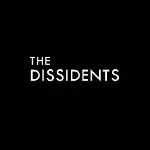
The Contradiction in The Substance: The Invalidation of Extremism
In the somewhat subdued main competition lineup of the 2024 Cannes Film Festival, French director Coralie Fargeat's second feature film, "The Substance," sent shockwaves through The Grand Théâtre Lumière, igniting a massive controversy among Cannes audiences and film enthusiasts worldwide, undoubtedly becoming a blockbuster. As Thierry Frémaux warned us, "Lay down some tarp, because there’s going to be a lot of blood."

"The Substance" is built upon a light sci-fi premise, where crafting a tantalizing set of genetic technologies capable of creating another, younger, more beautiful, and more perfect self for clients can be created. Demi Moore portrays Elizabeth Sparkle, a female star grappling with a midlife crisis and appearance-related anxiety, she attempts this injection in a bid to reclaim her youth and glory. Painfully but successfully, she splits off another dazzling self akin to Barbie named Sue, portrayed by Margaret Qualley. However, this game comes with strict rules; Elizabeth and Sue can only take control every seven days in turns. When this fragile and dangerous balance is shattered, the two seemingly separate women spiral into a terrifying and uncontrollable finale, culminating in a frenzy reminiscent of cult rituals, unleashing a tsunami of applause and gasps in the theater. Due to its portrayal of bodily terror and the objectification and gaze imposed on women, "The Substance" is frequently compared to "Titane" and "Barbie." The former won the Palme d'Or in the main competition three years ago, while the latter's director happens to be this year's Cannes Film Festival jury president, Greta Gerwig. However, director Fargeat's personal style is evidently bolder and more extreme than her two counterparts.


From every dimension, "The Substance" exudes an air of extremism. Narratively, it strives for efficiency and tension to a considerable extent. Backgrounds and conspiracies, traditionally elaborated upon in traditional drama, are significantly omitted here, leaving the audience feeling like participants in a role-playing game clouded with uncertainty, despairingly obeying the commands of an unknown force with each passing moment. This narrative strategy drastically amplifies the psychological states of anxiety and terror, rendering the audience's sensory experience tense and passively receptive, thus welcoming the torment from the audiovisual dimensions of the film. Distorted visual presentation and highly provocative sound design sustain an unreal atmosphere akin to electronic gaming and ”Cartoonization”. The director employs a plethora of stylized shots. Macro shots and extreme close-ups evoke the commercialization and sexualization techniques of capitalist media imagery, ironically critiquing this vain society that transforms immoral voyeurism into exploitation. Bizarre wide-angle shots, exaggerated tones, some wild handheld shots, and editing evoke echoes of "Twin Peaks" and "Inland Empire," while the film's strange atmosphere and grotesque spectacles bear the stylistic imprints of Lynch, Cronenberg, and Carpenter, accompanied by a highly provocative sound design, continuously piercing the audience's retinas beyond the limits of acceptance and sparking controversies regarding visual ethics.

Apart from facing criticism for "exploiting the audience," "The Substance" encounters significant controversy mainly concerning feminist issues. If a major film like "Barbie," also discussing feminism, portrays a gentle, graceful, and civilized guide, then Fargeat's film is dedicated to (via violence) destroying this corrupt world, much like "Terminator" or "King Kong." It unabashedly showcases the physical terror of exploiting women's bodies, the vilification of women's appearance and age anxiety, and the female competition based on the male gaze and patriarchy, earning it the label of being "anti-feminist." The director constructs a concise binary opposition model and artificially breeds monsters from it, attempting to intimidate the patriarchal and capitalist society, revealing that the gender dilemma in America and even the world largely stems from the entrenched sexualized aesthetic prevalent in popular culture catering to male fantasies. However, it's like spending over two hours describing a problem without providing a subjective resolution, possibly not only failing to harm the patriarchy and male gaze but actually pleasing them by borrowing their forms. The film's cathartic indiscriminate attacks at the end evoke associations with Romanian film "Bad Luck Banging or Loony Porn," though satisfying, it lacks ambition to reverse formalistic filmmaking and instead undermines its efforts on the thematic level. It could be said that the director's expression isn't as sharp as her visual style, resulting in a contradictory failure of "The Substance" — a victory of form once again, with the absence of expression. In fact, the controversies surrounding "The Substance" are essentially a classic debate on universal and classic boundary ethics — can a film, to what extent, exaggerate and amplify a value system in a form of criticism, and whether the potentially vile sense of humor and cynicism are incompatible with the seriousness of the issue? When a film becomes a funhouse mirror, attempting to reflect the viewer's inner deformities, it faces the risk of being powerless to shape those it reflects, instead distorting itself.

Nevertheless, "The Substance" showcases the genius and devilish fantasies of a female newcomer director, sparking yet another round of fascinating debates on feminism and cinematic ethics — an undoubtedly positive event from the perspective of film history; boundaries exist to be broken, whether people like it or not. How it will be evaluated by a jury led by an important female filmmaker remains a suspense as thrilling as the atmosphere it brings to Cannes.
wirtten by clockwork Z
THE DISSIDENTS are a collective of cinephiles dedicated to articulate our perspectives on cinema through writing and other means. We believe that the assessments of films should be determined by individuals instead of academic institutions. We prioritize powerful statements over impartial viewpoints, and the responsibility to criticize over the right to praise. We do not acknowledge the hierarchy between appreciators and creators or between enthusiasts and insiders. We must define and defend our own cinema. |





Share your thoughts!
Be the first to start the conversation.